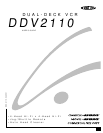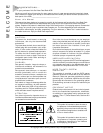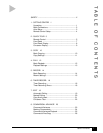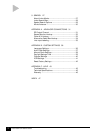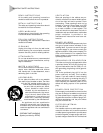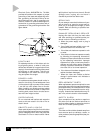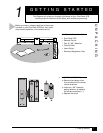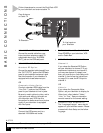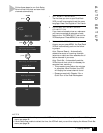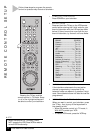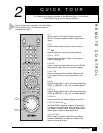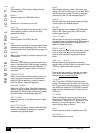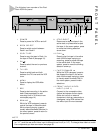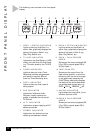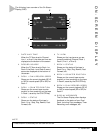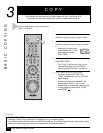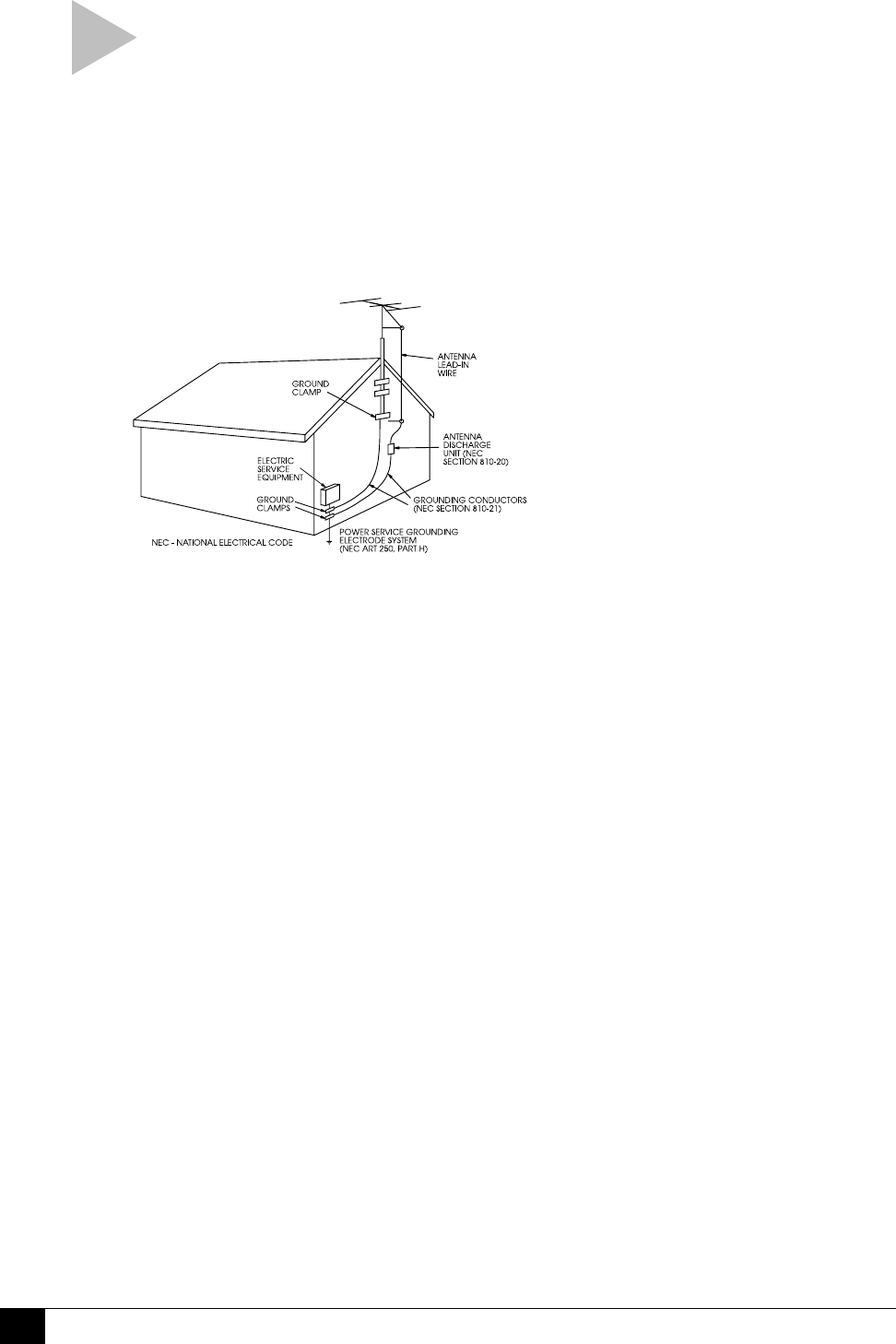
iv
Dual-Deck VCR User’s Guide
Electrical Code, ANSI/NFPA No. 70-1984,
provides information with respect to proper
grounding of the mast and supporting struc-
ture, grounding of the lead-in wire to an an-
tenna discharge unit, size of grounding con-
ductors, location of antenna-discharge unit,
connection to grounding electrodes, and re-
quirements for the grounding electrode. See
figure below.
LIGHTNING
For added protection of this video unit dur-
ing a lightning storm, or when it is left unat-
tended and unused for long periods of time,
unplug it from the wall outlet and disconnect
the antenna or cable system. This will pre-
vent damage to the video unit due to light-
ning and power line surges.
POWER LINES
An outside antenna system should not be lo-
cated in the vicinity of overhead power lines
or other electric light or power circuits, where
it can fall into such power lines or circuits.
When installing an outside antenna system
extreme care should be taken to keep from
touching such power lines or circuits as con-
tact with them might be fatal.
OVERLOADING
Do not overload wall outlets and extension
cords as this can result in the risk of fire or
electric shock.
OBJECTS AND LIQUIDS
Never push objects of any kind into this video
unit through openings as they may touch dan-
gerous voltage points or short out parts that
could result in a fire or electric shock. Never
spill liquids of any kind onto the unit. Should
spillage occur, unplug unit and have it
checked by a technician before use.
SERVICING
Do not attempt to service this video unit your-
self as opening or removing covers may ex-
pose you to a dangerous voltage or other
hazards. Refer all servicing to qualified ser-
vice personnel.
DAMAGE REQUIRING SERVICE
Unplug this video unit from the wall outlet
and refer servicing to qualified service per-
sonnel under the following conditions:
a When the power supply cord or plug is
damaged.
b If any liquid has been spilled onto or ob-
jects have fallen into the video unit.
c If the video unit has been exposed to rain
or water.
d If the video unit does not operate normally
by following the operating instructions.
Adjust only those controls that are covered
by the operating instructions. Improper
adjustment of other controls may result in
damage and will often require extensive
work by a qualified technician to restore
the video unit to its normal operation.
e If the video unit has been dropped or the
cabinet has been damaged.
f When the video unit exhibits a distinct
change in performance—this indicates a
need for service.
REPLACEMENT PARTS
When replacement parts are required, be sure
the service technician has used replacement
parts specified by the manufacturer or those
having the same characteristics as the origi-
nal part. Unauthorized substitutions may re-
sult in fire, electric shock or other hazards.
SAFETY CHECK
Upon completion of any service or repairs to
this video unit ask the service technician to
perform safety checks to determine that the
video unit is in safe operating order.
HEAT
This video unit should be situated away from
heat sources such as radiators, stoves, or
other products (including amplifiers) that pro-
duce heat.



